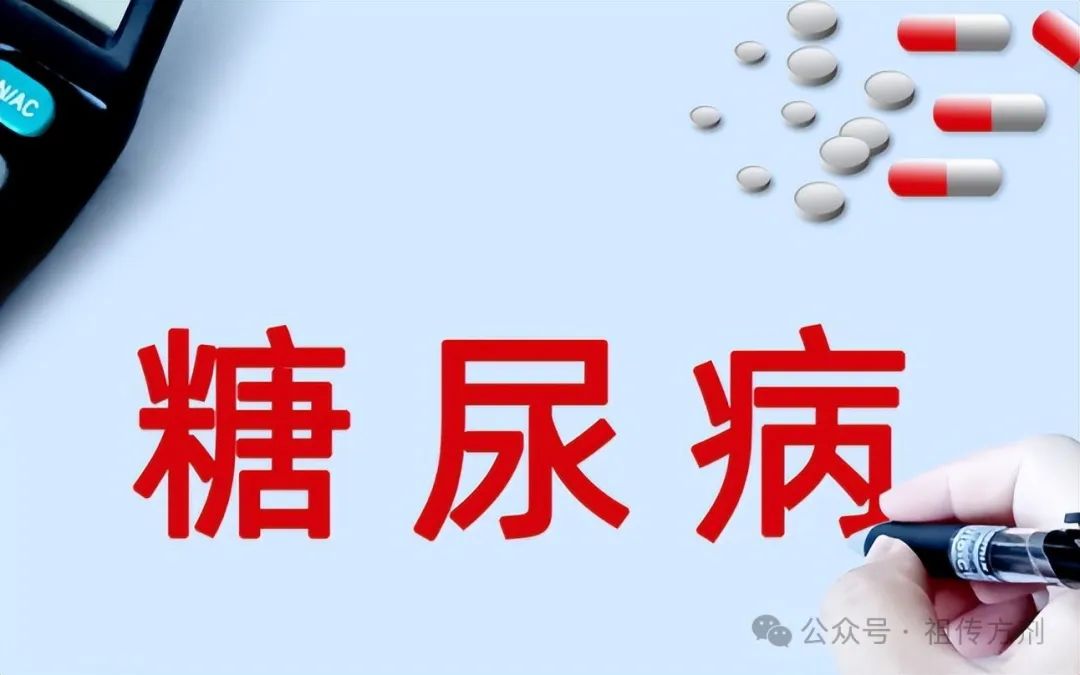A 58-year-old male patient was diagnosed with diabetes in his thirties, making him a long-time “diabetes friend.” For 20 years, he has actively controlled his diet and taken medication on time, but his blood sugar has remained unstable, fluctuating constantly. Six months ago, he suddenly experienced a rapid weight loss, frequent urination, and often felt cold and sweaty. He worried that he might have another illness, but after examination, the doctor informed him that these symptoms were still related to diabetes.
The patient was confused: Isn’t diabetes a “dry disease”? How could he also experience symptoms like feeling cold and excessive sweating? With these questions in mind, he decided to seek help from Traditional Chinese Medicine (TCM). After a TCM diagnosis, it was found that his pulse was deep and thin, and his tongue was pale with little moisture. Recently, he also experienced decreased appetite, loose stools, cold limbs, frequent nighttime urination, and weight loss. These manifestations are actually signals of Kidney Yang Deficiency.
The Connection Between Diabetes and Kidney Yang Deficiency
Diabetes is referred to in TCM as “Xiao Ke Zheng” (消渴症), with its fundamental cause often being Yin Deficiency and internal heat. However, as the disease progresses, Kidney Yin becomes damaged, leading to a gradual deficiency of Kidney Yang. Kidney Yang is the fundamental Yang energy of the body; once it is insufficient, the body’s warming function weakens, resulting in symptoms such as cold limbs, excessive sweating, loose stools, and frequent urination.
Kidney Yang Deficiency not only affects the body’s warming function but also leads to water metabolism disorders. Due to insufficient Kidney Yang, the body cannot properly vaporize and utilize fluids, causing fluids to descend to the bladder, resulting in symptoms like thirst, dry mouth, and frequent urination.
TCM Formula: Warming and Supplementing Kidney Yang to Improve Symptoms
For diabetes with Kidney Yang Deficiency, TCM has a classic formula that effectively supplements Yang energy and improves symptoms. This formula consists of the following herbs:
Ingredients and Dosage
-
Shu Di Huang (Rehmannia Root): 15 grams, nourishes Yin and supplements the kidneys, replenishing essence and marrow.
-
Shan Yao (Chinese Yam): 15 grams, strengthens the spleen and benefits the lungs, supplements the kidneys and astringes essence.
-
Shan Zhu Yu (Cornus Fruit): 10 grams, tonifies the liver and kidneys, astringes and consolidates.
-
Zea Xie (Alisma): 10 grams, promotes urination and drains dampness, clears heat.
-
Fu Ling (Poria): 10 grams, promotes urination and drains dampness, strengthens the spleen and calms the heart.
-
Mu Dan Pi (Moutan Cortex): 10 grams, clears heat and cools the blood, invigorates blood and disperses stasis.
-
Rou Gui (Cinnamon Bark): 6 grams, warms and supplements Kidney Yang, guides fire back to the source.
-
Shu Fu Zi (Prepared Aconite): 6 grams, warms the kidneys and assists Yang, disperses cold and alleviates pain.
Preparation Method
Place the above herbs in a clay pot, add an appropriate amount of water, and soak for 30 minutes. Bring to a boil over high heat, then reduce to low heat and simmer for 40 minutes, strain and take the liquid. Take one dose daily, divided into two warm servings in the morning and evening.
This formula falls under the category of “Warming Yang and Supplementing the Kidneys” in TCM theory, fundamentally improving the symptoms of Kidney Yang Deficiency through warming and supplementing Kidney Yang and strengthening the spleen and draining dampness.
Applicable Symptoms
This formula is suitable for patients with diabetes due to Kidney Yang Deficiency, with main symptoms including:
-
Cold Limbs: Cold hands and feet, fear of cold.
-
Excessive Sweating: Sweating even at rest.
-
Loose Stools: Weakened digestive function, unformed stools.
-
Frequent Urination: Frequent urination at night, large urine volume.
-
Poor Appetite: Reduced food intake, even nausea and vomiting.
-
Weakness in Lower Back and Knees: Weakness in the lower back and knees, worsens with activity.
Prospects of TCM Regulation
Regulating diabetes with Kidney Yang Deficiency requires a holistic approach, not only supplementing Yang energy but also addressing Yin Deficiency. Additionally, TCM suggests that patients pay attention to the following points in daily life:
-
Regular Schedule: Ensure adequate sleep and avoid staying up late.
-
Moderate Exercise: Engage in appropriate aerobic exercise daily, such as walking or Tai Chi.
-
Dietary Regulation: Eat more warming and supplementing foods, such as lamb and walnuts, and avoid raw and cold foods.
-
Emotional Management: Maintain a positive mindset and avoid excessive emotional fluctuations.
Professional Reminder
TCM emphasizes syndrome differentiation and treatment; do not use medications blindly. Patients with diabetes due to Kidney Yang Deficiency are advised to consult a professional TCM practitioner to adjust the medication based on individual conditions. If symptoms persist or worsen, seek medical attention promptly.
Conclusion
Diabetes with Kidney Yang Deficiency is not unmanageable. By supplementing Yang energy and regulating Kidney Yang, symptoms can be effectively improved, enhancing quality of life. It is hoped that this article can help diabetes patients better understand Kidney Yang Deficiency and find suitable methods for regulation to regain health.

There are 5000 kinds of remedies in the public account. After following the public account, you can search for the remedy keywords you want in the search bar in the upper right corner.

